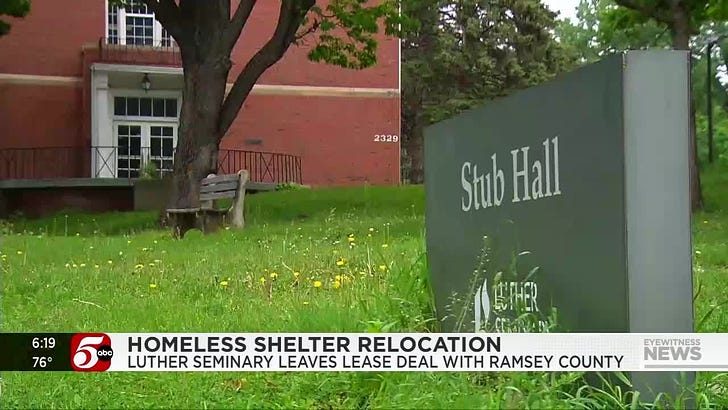
Discover more from Lutheran Confessions
After preaching yesterday a couple members caught me at the office door with questions/comments. I’ve come to love this aspect of preaching, the way it sometimes (more or less from week to week) has legs in conversation and congregational action.
In fact, I try to operate with the working theory that the sermon is far more than just the words spoken by the preacher in worship, but is literally the continuing engagement with the sermon that happens among the gathered community as the week proceeds.
This week, I had just finished up preaching on the so-called “delay of the Parousia.” I’d invited the congregation to consider what it means for us in our Advent observances that we talk about Christ, invoke Christ by name in ancient texts and liturgical action, in this sentence “practicing his presence, always while also acknowledging his absence (which is what it means to confess that he will “come again”).
It’s an unusual eschatological move, a paradox, that on the one hand maintains a kind of ambiguity about why we even refer to Jesus in community at all if he isn’t around, while at the same time allowing the continuing anticipation of his return to “trouble” us.
In this conversation we ended up talking about the alternatives some Christians have posited for how Christ continues to be with us. In the gospel of John it’s with Christ’s promised Spirit. That is how Christ stays “present.”
In Matthew, it seems to be “in the least of these.” Jesus’ final teaching in Matthew 25 before his crucifixion: ‘Truly I tell you, whatever you did for one of the least of these brothers and sisters of mine, you did for me.’
As we talked, I ended up mentioning one of the philosophical essays that has had the most enduring impact on my thinking, “Can the Subaltern Speak?” by Gayatri Chakrovarty Spivak, and lo and behold, they (my parishioner) went home and read that essay! Spivak’s is by no means an easy read, it’s post-structuralist, and I can’t say I fully follow all the arguments in it. It’s obscurely generative. But my member sent screenshots of passages they found particularly impactful, and then wrote,
“I think I get where they are going, that we hear "God" speak basically through the voice of "the people" but if the voice of the people is oppressed then can God speak... is that what this means? And that basically we've only heard the voice of white people. Predominantly white men? Who had to suspend their own conscience when writing? Am I understanding correctly?”
Although the “God” references aren’t an aspect of Spivak’s essay, I love how my parishioner so succinctly connects the main thesis of the essay to the topic we’d been discussing. The only thing I added was: “And also that in the same way a lot gets in the way of us hearing the subaltern speak, a lot gets in the way of us hearing God speak. Then, inasmuch as God is or identifies with the subaltern, we can also ask, "Can God speak?" and then the two topics, the subaltern being able to speak and God being able to speak become… the same question.”
I find this to be an incredibly compelling way of framing how progressive Christians in particular talk about God. There is, in some ways, a reluctance to speak of God, a desire to avoid overtly religious speech. Instead, there is studied and careful focus in progressive church on language that centers neighbor-love, in particular care for, attention to the “subaltern.”
However, sometimes in the same way language about God can become rote and vacuous, so too can some progressive language about justice and the neighbor. This is why essays like Spivak’s raise the question they raise. It’s a legitimate and ongoing question: can the subaltern speak, speak for themselves, speak over the voices of those in power who wish to speak on the subaltern’s behalf? And intriguingly, the question is not “can the subaltern be heard” but “can the subaltern speak?”
So for a progressive Christian, the parallel theological question has comparable validity. We might even say (along the lines of thinkers like Emmanuel Levinas) that the question of whether the subaltern can speak and whether God can speak are essentially the same question (because the face of God is the face of the neighbor).
At the very least, we might recognize that the question of God speaking presents many of the same problems as the question of the subaltern speaking, and that this is true is a fundamental insight of progressive Christian thought, informed as it is by thinkers like Spivak.
So now let’s jump back to the “delay of the Parousia” briefly. It’s largely assumed in many academic circles that this “delay” is a fundamental hallmark of the early Christian experience. It’s the dominant narrative, and it is this dominant narrative that I presented and worked with in the sermon.
However, there is some scholarship on the topic that complicates the dominant narrative… For example, in the article on the delay I linked above, the editor says some of the essayists included in the volume argue that [“Jesus expected an interval, and not just one between his own time and the destruction of Jerusalem: Glasson points out that the establishment of the Eucharist by Jesus is a clear sign that he envisaged a (perhaps lengthy) interval between his death and the end, a view to which Brant Pitre, a current “delay sceptic,” has recently assented” (https://d-nb.info/1199280437/34).
Another author in the same collection the New Testament (especially in Paul) illustrates “development rather than simply contextual variation. [The author] traces a series of shifts in Paul’s letters as Paul encourages his congregations to come to terms with delay. While in contrast to Wright, Landmesser’s approach envisages delays, such delays nevertheless provoke “Ambiguierung” and “Irritation” rather than crisis. Such afflictions lead to a development in Paul’s letters which culminated in a greater stress on the present experience of communion with Christ.”
All of this brings us back around to the question of God’s speech. Do we believe God speaks “through the Scriptures”? Through the sermon? Through the sacraments? Through the community? In the face of the neighbor? In the voice of the subaltern?
In post-structuralist perspective, we can similarly ask: Do we believe the poor can speak? That the “text” of the poor is a divine revelation? Do base communities preach? Are we attentive to the face of neighbors different from us? Etc.
We might argue that we will finally hear God when we finally hear the poor. And we will know whether they have truly spoken if our lives, the world, are changed in the direction of the call to action spoken by that voice.
And does God not speak in the dialogue between pastor and parishioner as they reflect on the sermon and Spivak?
Subscribe to Lutheran Confessions
Reflections from a progressive Lutheran pastor in the South.






Interesting take! My expectation, upon reading your title was more along the lines of Genesis and creation: "And God said, 'Let there be light, and there was light.'" So God spoke the Big Bang?
Then God heard His people suffering, and 450 years later, Moses heard the burning bush. Was Moses the first one called or was he the first to respond?
On Sunday we recited the Magnificat. Was Mary the first one called, or the first who responded? She certainly spoke as the subaltern; 2,000 years later we still give voice to her words.
Which brings me back to, "Does God need us to respond in order to be heard?" Or is the Big Bang loud enough?
We know and believe that God speaks to us through the Scripture. Scripture has three characteristics. 1. Scripture is truth. 2. Scripture is inspired. 3. Scripture is efficacious. These features of the Word are not limited to the Bible. God is in constant communication with us. Some people have tried to prove Scripture ( creation vs. evolution) If Scripture needs proving it brings the efficacy into question.